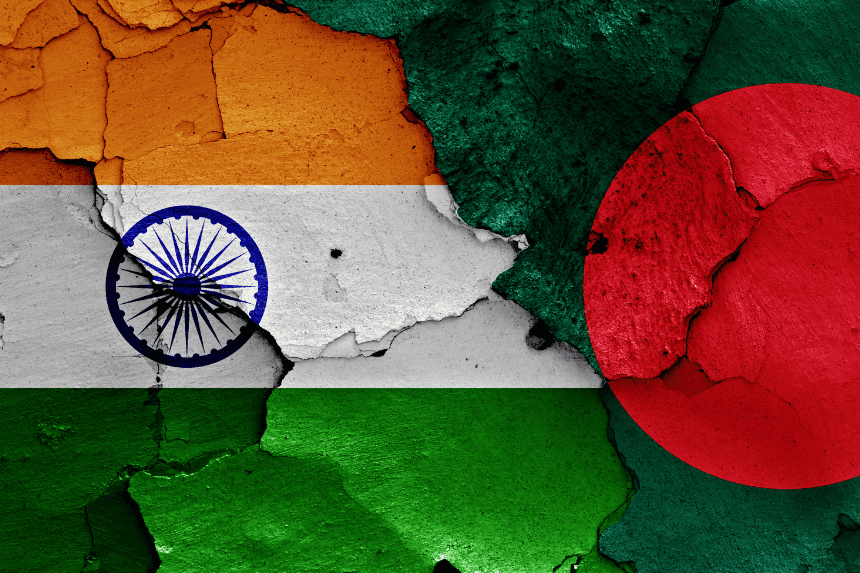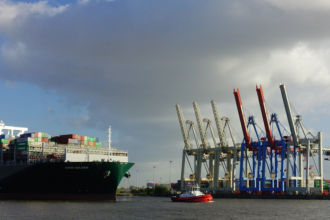India-Bangladesh trade relations have presented major difficulties recently. These rising tensions, typified by trade restrictions and changing political dynamics, are altering the economic environment for companies in both nations. Particularly with changes in trade routes and logistics, the effects on sectors such as textiles and apparel are becoming more evident as trade regulations develop. Businesses in these industries have to keep a careful eye on these changes to adjust and keep running efficiently.
Businesses trying to reduce risks and seize opportunities depend on an awareness of how India’s trade contacts are changing. The present situation of trade connections between India and Bangladesh, the main difficulties experienced by companies, and techniques to adjust in these evolving times are investigated in this paper.
Changing Trade Relations between India and Bangladesh
Most recent advancements in India Bangladesh’s trade policies have revolved mostly around trade prohibitions. Key raw material for Bangladesh’s textile sector, cotton yarn from India, has been banned for land imports by Bangladesh. This action is perceived as an attempt to shield local businesses from cheaper imports invading the market. The backbone of Bangladesh’s economy, the garment industry, depends on cotton yarn as a basic component.
Days after India closed a crucial transshipment facility it had been providing Bangladesh, the ban on land imports followed. Using Indian ports and airports, this facility let Bangladeshi exporters send goods to third nations. Many commentators view the suspension of this facility, y—justified by India on “congestion, —as a direct reaction to Bangladesh’s trade policies on Indian cotton yarn.
India-Bangladesh trade relations have changed significantly since the transhipment facility let Bangladesh’s products reach worldwide markets in record speed. Bangladeshi exporters used to be able to send their goods to Indian cities and then be flown to Europe and the United States in one week. Companies are now driven to investigate slower and more expensive alternatives like sea and air shipments without this effective path.
India and Bangladesh trade somewhat heavily overall. Third of the $1.6 billion cotton yarn India sold to Bangladesh in 2024 went via land ports. Now, limited routes mean more pressure on companies to find other logistics solutions. Bangladesh’s second-largest export sector after China, the apparel industry has suffered most since this restriction disturbs its worldwide supply network. Read another article on the Bangladesh Delegation
What Major Obstacles Affect Businesses?
India’s escalating conflict and Bangladesh’s trade policies are already clearly affecting companies, particularly those in sectors reliant on efficient, reasonably priced logistics. The rising delivery time and expenses are one of the most pressing issues right now. Businesses have to rely on slower and more costly sea and air shipments as the once-effective land route is not accessible.
For instance, cargo once arriving in Western markets from India’s transhipment facility now takes as long as eight weeks when transported by sea. Although speedier, airfreight is also becoming more costly in Bangladesh because of under-equipped airports and restricted capacity. Particularly in fast-fashion sectors, which rely on speed and affordability, the extra expenses related to these shipping delays could reduce the competitiveness of Bangladeshi exports.
The stoppage of transhipment facilities introduces still another degree of difficulty. Bangladeshi exporters used to be able to effectively send their goods using Indian ports. Companies today have to look for other ports or routes, which might not be as reasonably priced or suited. Further aggravating the situation is limited air goods capacity.
Furthermore, the unpredictability in India-Bangladesh trade relations forces companies to rely less on the same years-serving logistics systems. There is a great likelihood of further trade barriers and limitations, which would disturb already-existing supply systems even more.
How Might Businesses Change to Fit the New Trade Environment?
Companies engaged in India and Bangladesh’s commercial ties have to quickly adjust to the changing logistics and legal environment as the political scene changes. Thrive in this uncertain environment only by being flexible.
Diversifying their logistics choices is one of the most successful plans companies can follow. Companies should look at other maritime and air cargo solutions, as land movement across India is now limited. Reducing delays and expenses could come from strengthening ties with foreign shipping companies and looking at other ports. Investing in direct shipping channels can also give more control over shipping schedules.
Companies should also investigate improving their supply chain resilience. Diverse supply chains will enable companies to lessen their reliance on certain routes, suppliers, or resources now in flux. Businesses can better resist unanticipated changes and maintain their competitiveness by distributing risk over several paths, vendors, and partners.
Using technology to simplify processes is another tactic companies may take. Businesses will remain agile and informed by bettering inventory management, automating tasks, and applying software for real-time shipping tracking. Data-driven decision-making helps businesses to better control their supply chains, demand forecasts, and inefficiency reduction.
Companies could also think about improving their capabilities. Improving local infrastructure and raising manufacturing capacity will help to lower reliance on foreign logistics paths. Stronger local supply networks will help companies be more prepared to resist disturbances in cross-border trade.
At last, assessing new markets could present chances to balance the dangers presented by changes in India and Bangladesh trade relations. Exporters from Bangladesh should go outside conventional Western markets and investigate regional trade agreements and alliances with other nations in Southeast Asia and the Middle East. These other paths could provide more export prospects and help to lessen reliance on an erratic trade environment with India.
What Prospect Exists for Trade Relations Between India and Bangladesh?
Looking forward, India and Bangladesh trade ties’ future is yet unknown. Although political unrest shows no indication of abating, both nations have traditionally profited from economic cooperation. Although their relationship is being strained right now by the trade restrictions and logistical interruptions, both countries will probably see the mutual advantages of ongoing trade and economic cooperation.
Part of a larger geopolitical setting is India’s withdrawal of the transhipment facility and Bangladesh’s choice to limit imports of cotton yarn. Complicating the matter are tensions over the treatment of minorities, border issues, and regional affiliations. Both governments might, however, look for diplomatic answers to ease these conflicts and bring future commercial relations back into more harmony.
This implies that companies should be alert and ready for any more interruptions. Surviving and succeeding in this new trading environment will depend critically on developing alternative channels, diversifying supply chains, and investing in technologies.
Finally, companies engaged in commercial connections between India and Bangladesh have to negotiate the changing circumstances strategically. If left uncontrolled, the continuous tensions between the two nations could have long-lasting consequences on sectors that depend on seamless trade flows. Companies that proactively seek to diversify their logistical choices, strengthen supply chains, and embrace technology will, nevertheless, be more suited to withstand the storm.
Businesses may keep flourishing despite the uncertainty in India-Bangladesh trade relations by becoming nimble and sensitive to changes in the trade scene. Companies that keep adaptable, flexible, and knowledgeable will ultimately not only survive but also may uncover fresh prospects in these difficult times.








